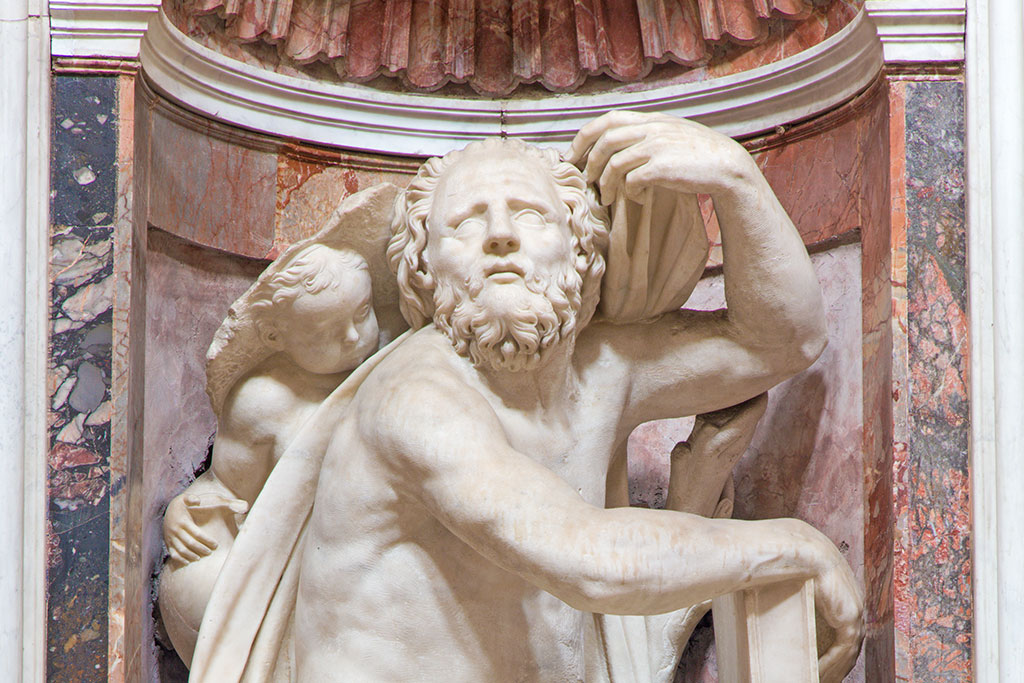
Habakkuk: a Man of Incredible Faith
The prophet Habakkuk lived at a time and in a world with many similarities to our own. There were frightening international tensions, the decline of one superpower and the rise of another, attendant anxiety and fear among smaller nations that tended to get trampled in the conflicts, and the confusion of political alignments and alliances. And, at the same time, the fracturing of moral and religious bonds and traditions were plaguing Judah’s own society with social dissolution and degradation.
It was a bad time. It was a baffling time. It was a world that was hard to understand. What did Habakkuk have to say about this situation? More importantly, what did God have to say about it?
Habakkuk’s Unsettling World
“Confusing” is a mild word for the state of the world during Habakkuk’s life. It was a time filled with international, political, religious, and moral chaos and rampant unchecked evil.
Internationally. For several decades, the whole world of the ancient Near East had been in turmoil, with one empire collapsing and another rising to take its place. All of this was generating great fear and uncertainty, especially among the smaller nations who, like Judah, had got caught up in the rivalry of the great powers of Egypt and Mesopotamia. Habakkuk turns to God in the midst of that world—a world he could not understand—with those fears and questions tormenting his mind.
Nationally. Although King Josiah had made valiant efforts to bring about reformation in Judah, the country was still suffering the long-term legacy of the evil reign of King Manasseh (reigned 687–640 BC). During that long reign, the people had slid into increasing idolatry and evil practices of all kinds. Even though Josiah had achieved some major reforms and purged the nation of the outward trappings of other gods, he was soon followed by his son Jehoiakim, who tragically reversed Josiah’s policies and behaved in arrogant, ostentatious, and oppressive ways. It was probably during the reign of Jehoiakim when Habakkuk asked his questions.
Socially and economically. There was increasing poverty, social inequality, sexual dysfunction, arrogant exploitation by the “elite,” dispossession, and all the suffering that went with loss of land and security (cf. Jeremiah 7 and 22). The country of Judah was descending into a spiral of increasing degradation and wickedness, while the perpetrators of these ills were boldly getting away with it. That was the trigger for Habakkuk’s opening complaint to God.
Religiously. There was a mixture of syncretistic worship of other gods (Jeremiah 2) and concurrently a paradoxically dangerous complacency in the assurance that Yahweh, the God of Israel, would always defend his city. God’s people thought they would be safe as long as they carried on their worship in the Lord’s temple, for God would never allow his own temple to be destroyed. How wrong they were (Jeremiah 7)!
Politically. Because the international scene was so turbulent, the political alignment of Judah oscillated back and forth. There was apparently constant conflict between the anti-Babylonian and pro-Babylonian parties in Jerusalem. The prophet Jeremiah suffered badly at the hands of the former party for going around saying that God had raised up Nebuchadnezzar (as God had told Habakkuk) and that the best thing to do for the moment was to submit to that king. This was subversive speech and it made Jeremiah very unpopular, to say the least. In fact, Jeremiah narrowly escaped lynching and murder more than once. Other prophets were not so fortunate—check out Uriah (Jeremiah 26:20–23). Speaking truth to power was dangerous!
Habakkuk Sought God in His Confusion
What are the things that God ought to be doing something about, but isn’t – Habakkuk has a list!
Why do you make me look at injustice?
Why do you tolerate wrongdoing?
Destruction and violence are before me;
there is strife, and conflict abounds. (1:3)
Habakkuk reels off six different words for social evils of all sorts—injustice, wrongdoing, destruction, violence, strife, conflict. These are the social outworkings of sin. The kind of things that embed themselves in the structures and practices of fallen human societies.
The word “violence” (hamas) is a key word in this book. It occurs six times, including in the list in Habakkuk 1:3. In 1:2, it is a kind of yell—a cry for help.
How long, Lord, must I call for help,
but you do not listen?
Or cry out to you, “Violence!”
but you do not save? (Habakkuk 1:2)
It’s like the shout of somebody witnessing a brutal attack on some innocent victim nearby and shouting out, hoping that others, or the police, will come to intervene.
Habakkuk’s Dilemma
The God Habakkuk knows and worships and trusts is Yahweh. Yahweh is the just and compassionate God who characteristically listens and saves. Yahweh is the God who hears the cry of the victims of violence and saves them. All the old stories of Israel’s history illustrate this truth. Many psalms celebrate it.
Right now, God does not seem to be listening nor saving. These are the two things that God has done in the past, that God can do at any time, that God should do . . . but is not doing now. God is neither listening to Habakkuk nor saving the victims of violence.
Here, then, is the challenge of verse 2. It seems there is a contradiction between what Habakkuk knows and believes about God from the stories, the Scriptures, and the worship songs of his people on the one hand and the present reality that surrounds him on the other. There is a clash between what he believes and what he sees. And God has been silent and inactive for so long. How much longer do Habakkuk (and others) have to cry out before God hears and saves them?
God’s Response
The answer that God gives to Habakkuk’s opening question is rather anticlimactic, it would seem. In essence, God says, “Wait for it. Be patient . . .” –
For the revelation awaits an appointed time;
it speaks of the end
and will not prove false.
Though it linger, wait for it;
it will certainly come
and will not delay. (Habakkuk 2:3)
What God is about to reveal may take a long time before it all takes place, but “it will certainly come.” God’s sovereign purpose in history will be accomplished. That’s because God does not tell lies, and his word will always accomplish what God sends it to do (Isaiah 55:10–11).
Taking the Long View
Habakkuk rehearses in vivid poetry some of the great episodes of the story of his own people Israel—those mighty saving acts of God in their past. We should draw hope from not only knowing the story so far (from the Bible), but also from knowing where the story leads and how it ends.
Like Habakkuk, we need the courage of discernment—to know and trust that God remains sovereign in the world of history and nature. We need to listen to the news with this perspective in mind. “Look at the nations and watch . . .” (1:5). Watch out for God at work. Discern the mustard seeds of the kingdom of God. Join Joseph in recognizing—sometimes with the hindsight which then strengthens our confidence in the unknown future—that even things that are intrinsically evil (and were intended by their perpetrators to be so) can be the means by which the overruling sovereign God can bring about that which is good (Genesis 50:20).
We may not know how or when, but the Judge of all the earth will ultimately do what is right—either within history in his acts of judgment and redemption or ultimately in the great rectification of the final judgment. God will deal with all wrongs and put all things right before he makes all things new in the new creation.
Trust me, says God. Go on living by faith—faith in the sovereign justice of God as well as in the sovereign grace of God. Are we allowing the big picture, whole-Bible story to strengthen our faith and generate our joy, even in the midst of a threatening world around us?
Habakkuk’s Direct, Honest Prayer
Habakkuk stands among the many in the Bible, including many in the book of Psalms, who cry out to God in lament and protest at the evil they see all around them. But do we? Or do we just complain and protest to one another?
We can and should pray for our rulers to come to repentance and salvation and to do justice. And we can follow the example of the psalmists who appealed to God against wickedness in high places on behalf of those who suffer the consequences.
Looking Forward with Hope, Joy, and Strength
Habakkuk’s mission was to expose and oppose all the idolatry that produces injustice, violence, and suffering and to call people to repentance. At the end of the book, we find Habakkuk still shaking with fear, because God has shown him what lies ahead in the immediate future. However, we also find Habakkuk strengthened in faith. He is determined to be among the righteous who will put their trust in God and go on living by faith (2:4)—no matter what.
In these famous closing words, Habakkuk makes three amazingly strong resolutions: I will wait. . . . I will rejoice. . . . I will run. He plans to get on with his mission, with energy and determination, in the strength of his Sovereign Lord:
Though the fig tree does not bud
and there are no grapes on the vines,
though the olive crop fails
and the fields produce no food,
though there are no sheep in the pen
and no cattle in the stalls,
yet I will rejoice in the LORD,
I will be joyful in God my Savior.
The Sovereign Lord is my strength;
he makes my feet like the feet of a deer,
he enables me to tread on the heights.)
(Habakkuk 3:17-19)
May we live in the example of Habakkuk with the obedience of faith, knowing the Sovereign Lord is the source of our hope, joy and strength.
Content adapted fromHearing the Message of Habakkuk by Christopher J. H. Wright.
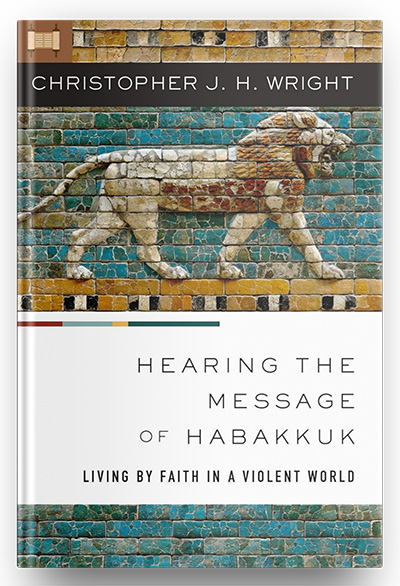
Hearing the Message of Habakkuk
Hearing the Message of Habakkuk walks through the questions the prophet asked God about injustice and the jaw-dropping answers he received. What we learn from Habakkuk’s dialogue with God can help us today as we struggle to work out what it means to believe in God’s sovereignty, justice, and love, and to live as faithful disciples in an unjust world.
Learn More

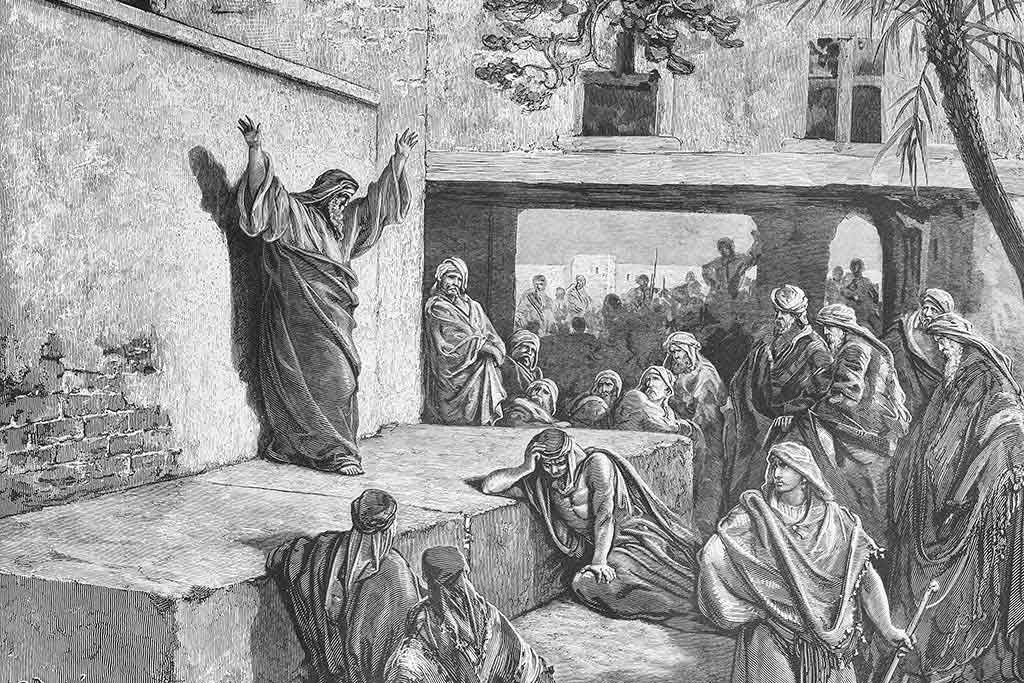
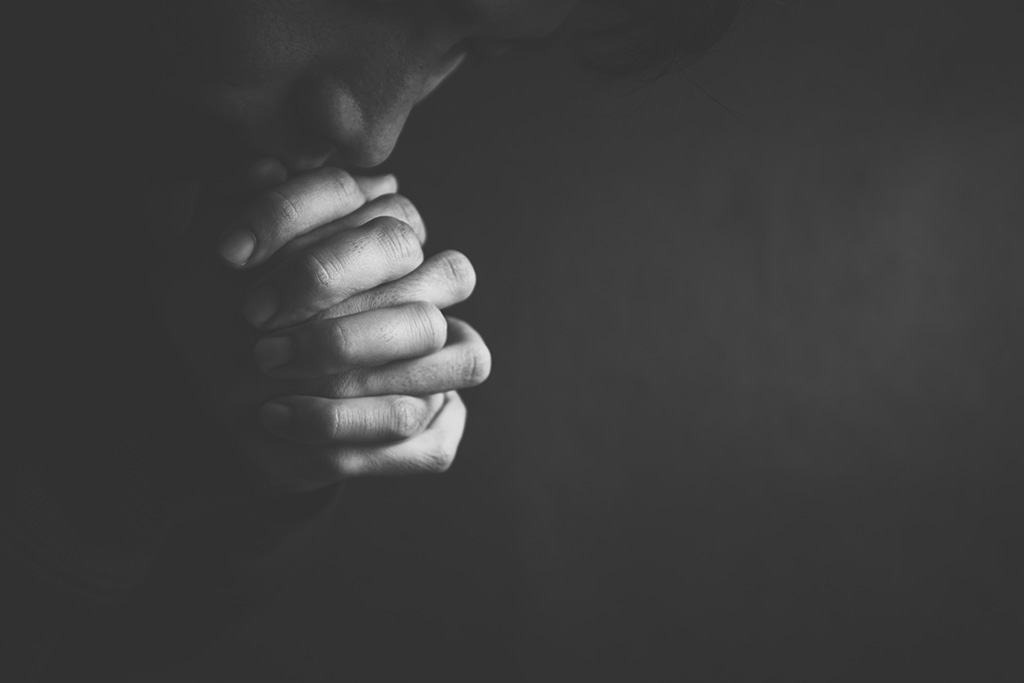
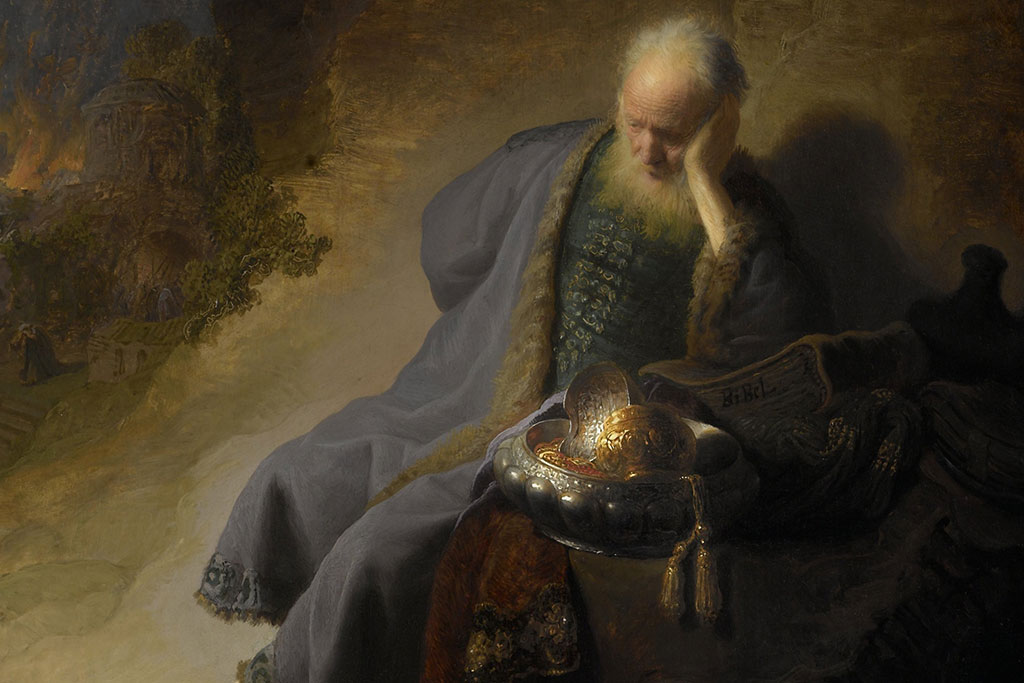



Thank you as I learn to walk in faith. There are many different things to find out about myself in this walk. But most of all, the father gives us his Word and the Word gives us understanding and perspective of our times. We need to have less of us and more of him.
Dios les continúe bendiciendo grandemente. Me encantó leer éste artículo, es muy edificante. Gracias por compartir. (May God continue to bless you greatly. I loved reading this article. It is very edifying. Thanks for sharing.)
This article builds my faith.
Thank you for the amazing interpretation of the life of Habakkuk, and his faith in God. This builds my trust in God.
Thanks for this Scripture of Habakkuk. It has given me the knowledge of how to pray for our land.
Thanks for the inspiration from the book of Habakkuk.